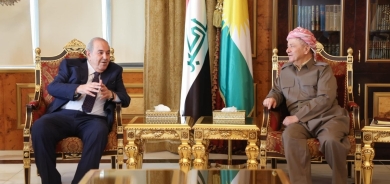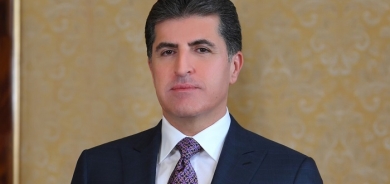Ofra Bengio: [Kurds] proved they are a nation worthy of a state of their own
June 28, 2014
Exclusive Interviews
![Ofra Bengio: [Kurds] proved they are a nation worthy of a state of their own](https://gulanmedia.com/public/old_images/t_dimana/3246.jpg )
Bengio: The latest upheavals in Iraq are certainly endangering the American interests which can be observed on various levels. First economically speaking if oil is the main important asset of the United States in Iraq, the drive of the Jihadists ISIS toward Baghdad and further south exposes Iraqi export of oil to great dangers which will have impact on oil prices and effect not just the US but the entire world. On the geostrategic level, the possible rise of a terrorist state in Iraq will have serious destabilizing impact on the American allies in the region. On the other hand such development will increase the power of its nemesis Iran, which will seize the opportunity to increase its influence in Iraq, improve its image from a state that encourages terrorism to one fighting it, and diverse world attention from its nuclear program. Another blow for the US might be that her image as paper tiger will be further reinforced by her inaction in Syria and Iraq against the Jihadists who might one day reach its own doors again.
Gulan: the threat and danger of the terrorists are that they are united in both Syria and Iraq and they are claiming the end of Sykes Picot borders and declaring Iraq and Levant State. So if no one stops them, will this theory come to reality? And will Afghanistan repeat in Iraq?
Bengio: I think that the situation is very fluid. Yes the Iraqi army has just melted down before the ISIS, but still I don’t think that the Shiites are going to give up very easily. It seems to me that Ayatollah Sistani calls the believers to fight ISIS which is quite different from his stance in the past when he was for more ecumenical approach and for coming to terms with the radical Sunnis. Now that he sees that the danger is approaching he calls the believers to fight back. On the whole, it seems to me that Baghdad is not going to fall so quickly into the hands of ISIS, but even if so controlling a city of 8 million people will not be an easy task for ISIS unless the Sunni community supports them. There might also be problems between Sunni tribes and ISIS. Generally speaking, however, I think that the successes of ISIS in Iraq sends a lot of messages to extremists in many countries in the region, such as Hamas in Israel, or to ISIS in Syria, or Islamists in Jordan, and encourage them to follow on the footsteps of ISIS. All in all, Iraq as unitary state is finished but on the other hand it is not certain at all that the Jihadists will be able to conquer all Iraq and rule it too. Either Iran or Iraqi Shi`is may be with the help of Hizbullah will be able to stop them somehow.
Gulan: Giving this chance and opportunity for terrorism to rise in Iraq which is because of sectarian and authoritarian policies of Maliki and also it is a result of neglecting Sunni Arabs as it is why now the Sunnis are supporting ISIS. In your opinion, to what extent can the problem of terrorism be resolved through political means in Iraq?
Bengio: yes of course it can be, but the question is who is going to make the change because this is another mistake of the Americans as they supported Maliki all the way. Maliki became authoritarian, marginalized the Sunnis and broke relations with the Kurds, and now it cannot be changed. I believe that it is possible to find a political solution if there is the will and the understanding to do so. But right now there is neither a personality or a political party who seems capable of carrying out the job.
Gulan: Iraqi components have never reached any kind of agreement without the third party intervening and mandating between them. The situation currently has reached the point that requiring resolving both the Syrian and Iraqi problems and crisis together. To what extent will the chaos and the complicated situation in Iraq urge the international community to resolve Syrian situation?
Bengio: No, it will not. Unfortunately the world is too tired for sending forces to the region. They failed twice to solve the Syrian issue in Geneva, and they think that Assad should stay there because otherwise we are going to see in Syria what we have seen in Iraq. There is no appetite for going to another war, third war, an international war against Iraq because the issue is one of a guerrilla fight and not regular army with tanks, etc. Some people now think that what is going on in Iraq will push the world to do something united and fight the ISIS, I don’t think so. The issue remains in the hands of Iran and the Shiites to stop the ISIS, while the Kurds have their own chunk of territory. It seems to me then that the fight between ISIS and the Shiites will continue but no large military forces will be sent either to Syria or Iraq.
Gulan: in such kind of crisis, people have hopes for international community to intervene. On the level of international community, there an anti-terrorism alliance, but against ISIS which is a branch of Al-Qaeda, there is no position from the alliance. So why is international community silent towards ISIS’ actions?
Bengio: Because they are afraid of being involved in such issues which will bring terror to their own house. They have experiences that things deteriorated to such an extent that if people on the ground do not do solve problems between themselves, it is very difficult for outside forces to do so. They can justify what they are not doing by arguing that the question of terrorism is so difficult and it cannot be solved by sending troops. You have solve the problem at the political level as you have suggested.
Gulan: despite Iraq’s going through most difficult times, there is a serious sectarian and ethnic division and almost a civil war is about to take place and this apparently weakened the country. To what extent, will collapse of Iraq be creating a bigger zone for terrorists that will be a real danger to the world?
Bengio: Iraq does not exist as a unitary state since 2003. Even since 1991, you have two entities, Kurdistan and Iraq. On the contrary, I think that a stable Kurdistan may even strengthen the possible solution of it. The collapse state is already there, it is not something new.
Gulan: what is the message for us at the moment Kurdish Peshmarga forces took holds most of the disputed territories? However, President Barzani said that they would not withdraw from these places. How do you interpret President Barzani’s position?
Bengio: he tried to come to terms with Maliki for long time. Since the promulgation of the constitution a decade ago there were so much talk and promises from the Iraqi side, but unfortunately Maliki did not go all the way to solve the problems of Kirkuk and the other disputed areas. So in a way the Kurds are justified to go their own way. At least they are going to maintain their points, and the government in Baghdad understands what is the situation, and they cannot rely on Maliki for sure because all these things that he has done for the last few months and even years did not help to solve the problem—the basic problem of the Kurds.
I wish success to the Kurds because they have suffered enough in the twentieth century, and now they proved they are a nation worthy of a state of their own. They might turn the twenty first century as another opportunity for them to live as a free people and to take their own fate in their own hands.















